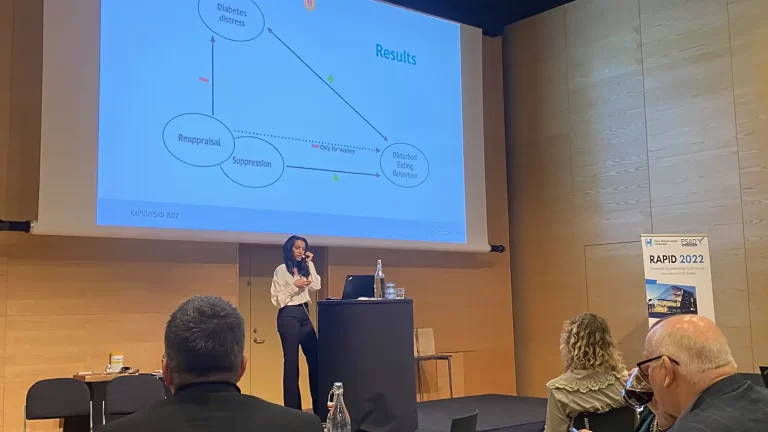This past week you may have heard a lot of fuss being made on social media about Teplizumab having been approved by the FDA (FDA Approves First Drug That Can Delay Onset of Type 1 Diabetes | FDA) for clinical use in the USA. So, what does this all this mean and most importantly how does this impact Australians living with type 1 diabetes?
TrialNet (Home | TRIALNET Type 1 Diabetes TrialNet) is a global research group that has been conducting a randomised controlled trial using the immune therapy Teplizumab (with a marketable name known as Tzield) to determine if it could delay the onset of stage 3 of type 1 diabetes for a person who has stage 2 of type 1 diabetes. But what are these 3 stages of type 1 diabetes and what role does this drug have in preventing type 1 diabetes?
Scientists have now ascertained that type 1 diabetes happens in 3 stages. Stage 1 is where someone has developed autoantibodies, better known as an autoimmune response, where the immune system has attacked itself for some reason. In stage 1, the person will only have autoantibodies…their blood glucose levels remain in target range…so they need no treatment. Stage 2 is where someone who has autoantibodies has progressed to develop blood glucose levels that are above target range…but they usually don’t have the signs and symptoms (thirst, tiredness, loss of weight and frequent urination) that precedes type 1 diabetes. Stage 3 is where someone who has autoantibodies and blood glucose levels above target progresses to what we know as clinical type 1 diabetes because they have fallen unwell with signs and symptoms (thirst, tiredness, loss of weight and frequent urination), which leads them to needing daily glucose monitoring and insulin administration.

Researchers all around the world have been working so hard to try find a drug to intervene between stages 2 and 3 of type 1 diabetes so that people don’t fall unwell and most importantly, so people don’t progress to developing type 1 diabetes that requires daily glucose monitoring and insulin administration. It’s this drug Teplizumab (Tzield) that has managed to start ‘turning off the autoimmune attack’ that has shown to cause a delay for people with autoantibodies and blood glucose levels above target range (stage 2) so they don’t develop clinical type 1 diabetes (stage 3). This trial using Tzield has shown that after 3 years of receiving the drug (a daily infusion for 14 days) people in stage 2 so far did not progress to stage 3. Whilst this drug, Tzield, does not yet completely prevent stage 3 of type 1 diabetes, it gives a few more years free of having to monitor blood glucose levels or inject insulin…which for a child and their family is a relief. But what does this mean for Australia?
Now that the FDA in the USA has approved Tzield to be used clinically for those with known autoantibodies, this gives diabetes advocates and stakeholders in Australia traction to keep pushing the TGA (Therapeutic Goods Administration (TGA) | Australian Government Department of Health) to approve the same drug for Australians living with stage 2 of type 1 diabetes. So how do people know if they have autoantibodies? In Australia we currently have 2 type 1 diabetes screening programs. JDRF Australia has funded a new pilot program that is screening the general population (Type 1 Diabetes General Population Screening | JDRF) for those that do not have a family history of type 1 diabetes. JDRF Australia also funds the Type 1 Screen program (Type1Screen – Screening for Type 1 Diabetes) that screens those who do have a family history of type 1 diabetes. If we screen people for autoantibodies, then we can detect autoantibodies earlier so we can hopefully one day intervene with immune therapies like Tzield in an attempt to delay and one day completely prevent as many people as possible from developing stage 3 of type 1 diabetes…which is currently the next best thing to a cure because PREVENTION IS A CURE.



